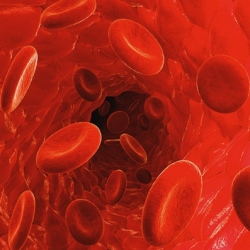
Milo Sensors is a company built around wearable sensors that detects various chemicals in your body based on perspiration from your skin. The company is starting off with Proof, a small band that can gauge your blood alcohol content and send the information to an app where you can subtly see where you are.
“There’s a breathalyzer out there but no one uses it because they’re awkward,” Strenk said. “The use case there is you put our sensor on, at 6 p.m., you set your alarms for yourself, and everything’s paired with an app. [When I check my phone] you don’t even know if I’m messaging someone or checking my BAC. And because it’s continuous tracing, you can set alarms for yourself, like hitting .08 percent. I want to be alerted, maybe if I’m driving home, and you can connect with safety buddies, friends and family at undesirable levels.”
The goal is to continuously track a user’s blood alcohol level, instead of waiting for a single moment to ping the phone with an alarm. By doing that, users can get a sense of how fast they are ramping up and know whether or not to slow down. The band transmits the information to the app, which quickly shows a chart of how high their BAC is.
While users can detect their BAC for now, the technology translates into detecting other things like caffeine as well, Strenk said. “The skin ends up being a superhighway of molecules,” with the technology being applicable to a different variety of use cases,” he said. For now, gauging BAC made sense, and, also, the co-founders of the company decided on it over a few pitchers of beer. It could have been an earring, or started off with detecting lactic acid, but after the round they settled on BAC and a band.
The owner slots a cartridge into the band around 6 p.m. before they are planning to go out. The cartridge is disposable, which will cost a few dollars, Strenk said. “The analogy is, you put a raw piece of meat on the counter, over a few hours it turns brown. Similarly you open a cartridge, it oxidizes. It goes beyond step counting, it goes beyond heart rate, it’s reading bio-analytic through your skin.”
There’s always a risk that another large wearable company like Fitbit could figure out how to integrate something like this into their products. Though the whole using a disposable cartridge part may put a hamper on things, Strenk said the main advantage Milo Sensors has is that it’s been doing research for more than two years.
Milo Sensors submitted the first prototype to the NIH last year, which compared the results against breathalyzers and blood samples and awarded the company a cash prize, Strenk said. The company was more or less in stealth until launching at CES this year. The band will come out sometime this year, though Strenk wouldn’t specify, and will cost somewhere between $100 and $150.
